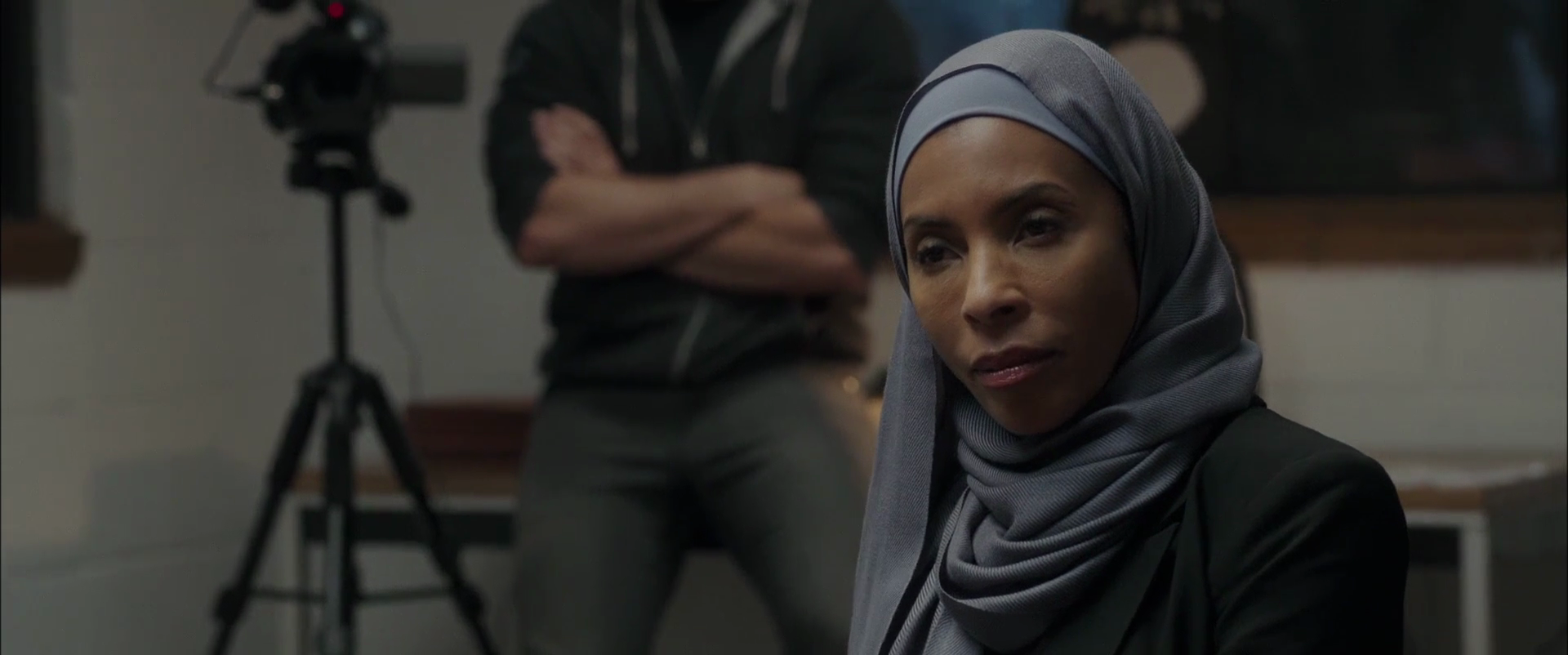
When I read in screenwriting textbooks that film dialogue is different from real dialogue — conflict, twists, and thick subtext are not so common in everyday conversations — interrogation scenes always come to mind. They usually make intensive use of the canonic ingredients of cinematic exchange.
The cop wants to hear the truth, the evildoer refrains from speaking (conflict). The cop progressively reveals what he already knows, promises less prison time, threatens to abandon the criminal to the severest possible sentence (a strategy — Good Cop, Bad Cop, of course — with twists).
What about subtext?
Well, first, there is a layer of relational subtext where reciprocal trust is at stake. “Can I trust you when you tell me that the judge will appreciate it if I speak to you instead of waiting for my lawyer to arrive? Or do you just want to screw me?” “Do you really hold in your hands the good cards — the evidence — you hint at? Or do you just want to scare me?” “We both know you are lying even if I can’t prove it. What is it you’re not telling me?”
All of this constitutes the what-game-are-you-playing-at level of subtext.
Sometimes there’s a second, more decisive layer. This is the case when the bad guy’s action — and his refusal to cooperate — is motivated by an ideal, a set of values he considers incompatible with the law. “I don’t want to talk because I don’t recognize in you any authority. Your values are not my values.” In these cases, the cop’s aim is to insinuate the idea that those values are wrong, that the mindset of the suspect is inconsistent, or that his behavior is inconsistent with the values that inspired his evil action. (The prisoner might address the cop’s code in a similar fashion).
The moral issue (coherence, values, self-esteem) is what lies beneath the words. This happens because it becomes the main target of the interviewer’s attack — implicitly at the beginning of the dialogue, then openly at the end of it, when a collision of different agendas occurs.
A recent example is the interrogation scene from Patriots Day (2016, written by Peter Berg, Matt Cook, and Joshua Zetumer). Well-crafted. And expertly played by Khandi Alexander, the Muslim agent who interviews Katherine Russell, wife of one of the two fundamentalists responsible for the 2013 Boston Marathon bombing.
[spoilers follow]
After the barbaric attack at the marathon, Katherine’s husband has been killed by the police. His brother is still on the run. A huge manhunt is underway. The FBI and the High-Value Interrogation Group need to know if the terrorist is going to attack again. That’s why the agents put the screws to Katherine, who is strongly suspected of knowing the terrorists’ plans.
You can watch the scene here to appreciate the strategy used by the interrogator.
- The destabilizing mantra (“Are there more bombs?”) that marks the progression of the exchange, punctuating the dialogue, giving rhythm to it. The line is pronounced differently each time: calmly, then firmly, then with a persuasive tone, then with a deep, authoritative, otherworldly voice (the Bad Cop inside the Good Cop), then pleadingly, with an harsh and broken voice, like an ancestral call to obedience, then finally in a heartfelt manner.
- The agent hinting how much the authorities know about Katherine, suggesting that she is trapped, that they can easily prove her guilt (her compromising Google searches and cellphone texts, the explosive residue found on her kitchen table).
- The interrogator addressing the issue of what’s better for Katherine’s daughter (Good Cop); the agent denying that the suspect can count on any rights in such an emergency (Bad Cop).
Most of all, you can appreciate how the scene’s moral theme and deep subtext unfold:
- They are immediately established. Since Katherine doesn’t answer the interrogator’s Arabic greeting (and Mohammed’s commandment is to always give a response to such a greeting), the interrogator insinuates an uncomfortable implication: “You disrespect the Prophet?”
- The agent insinuates that Katherine’s cultural and religious identity has weak roots (“I was born in a tent […], you were born in a room full of flowers and balloons”), and that she’s ungrateful to the country that granted her a comfortable life.
- Finally, the interrogator suggests that Katherine’s loyalty to her dead husband’s ideas means defending an extremist mindset that doesn’t contemplate real love for a woman and a wife (“He didn’t even kiss you before he left…did he?”).
To learn more about the behind-the-scene of this dialogue and to consider whether or why it endorses the negation of prisoners’ rights while under interrogation, see this critique by Vince Mancini, and listen to this interview with the director of the movie, Peter Berg (at the 11:30 mark).

Be First to Comment